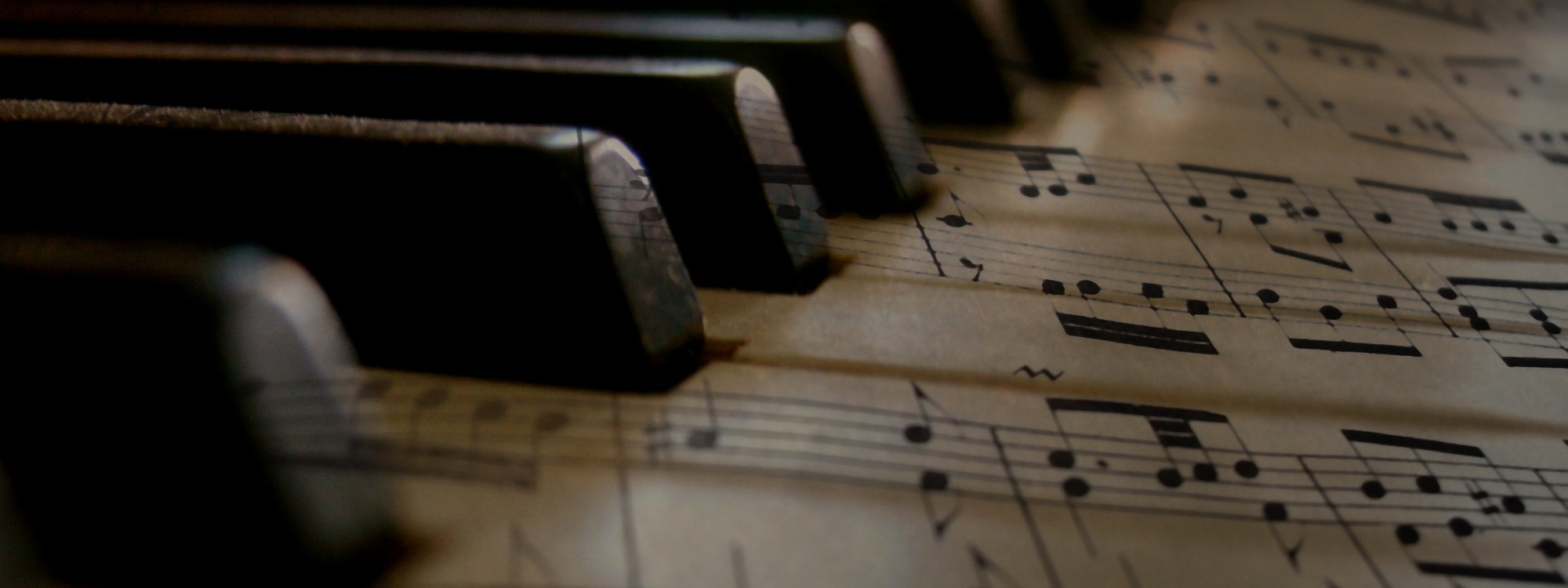
- Home
- Academic
- Subject Information
- Music
Music
Our curriculum is inclusive, absorbing, relevant, varied and progressive – all of which produce active and confident students.
Music is an incredibly varied subject, encompassing practical, listening and creative skills, self-management, problem-solving, and communicative. The curriculum has been designed to scaffold practical musical skills from Year 7 to Year 13, carefully sequenced, linking all musical activities to the act of making music. We encourage all students to take part in the extra-curricular programmes, such as Choir, Brass Group, Orchestra, Theory Club and more along with instrumental and vocal lessons to develop their instrumental/singing skills and general musicianship. The learning experiences are high quality and authentic, with clear progression routes.
All music should be rooted in an authentic musical activity, including all theory and listening skills; hence, our curriculum is delivered through primarily practical means. Schemes of Learning from Year 7 to Year 13 have been developed to offer numerous opportunities to interweave substantive and disciplinary knowledge from the start of year 7, meaning content is embedded into students’ long-term memory. While the curriculum is incredibly broad and allows for students to explore unfamiliar musical traditions, the topics have been carefully chosen to explore the key concepts aimed at each key stage.
Students build on their previous knowledge and skills through performing, composing and listening. They develop their vocal and/or instrumental fluency, accuracy and expressiveness; and understand musical structures, styles, genres and traditions, identifying the expressive use of musical dimensions. They listen with increasing discrimination and awareness to inform their practice as musicians. They use technologies appropriately and appreciate and understand a wide range of musical contexts and styles.
KS3
|
Year 7 |
Year 7 Concert and Music Elements Introduction |
Pulse, rhythm & dictation |
Pitch Notation & keyboards |
Programme Music & Music Tech Introduction |
||
|
Year 8 |
Reggae |
12 Bar Blues |
Musicals |
Rondo Form (structures) |
||
|
Year 9 |
Film Music |
A brief history of Western Music |
Song Writing |
|||
Simon Langton Girls’ Grammar School is fortunate to have a large team of visiting Music Teachers who teach throughout the school week. A large percentage of students have music lesson either at school or elsewhere and we actively support them in these. Further details and appropriate forms can be found under the information menu on the school website.
Extra-curricular Activities
As a department we offer a wide range of extra-curricular opportunities for those students who want to develop their musical skills and abilities beyond a classroom curriculum. Students are encouraged to take part in our extensive and ever-growing collection of musical ensembles which include:
|
KS3 String Quintet |
Langtones |
Junior Choir |
Year 7 & 8 Orchestra |
|
Year 7&8 Strings |
Flute Ensemble |
Sax Ensemble |
Folk Society |
|
KS3 Chamber Choir |
Full Orchestra |
Brassies |
Musical Choir |
|
Beginner Brass |
KS5 Barbershop |
Reggae Band |
Jazz Band |
|
Flute Quartet |
String Orchestra |
Senior Choir |
Theory Club |
|
Senior String Quartet |
Soul & Funk |
Advanced Orchestra |
Band Club |
|
Brass Trio |
Advanced Flutes |
Indie Band |
Chamber Choir |
GCSE
Board
Edexcel
Outline of the Course
- Made up of musical performance, composition and appraising.
- Performing is worth 30% and students must perform at least two pieces, one of which will be a solo and one as part of an ensemble. The minimum time for both pieces must be at least 4 minutes. Grade 4 equivalent difficultly is the aim by the end of year 11 for top marks.
- Composing is worth 30% and students need to compose at least two pieces, one must be in response to a brief set by the awarding organisation and one must be a piece of free composition, the minimum time for both pieces must be at least 3 minutes.
- Appraising is worth 40% looking at musical theory through set works including: Defying Gravity, Star Wars main theme, Killer Queen, a Beethoven sonata and more!
Assessment
|
Type of Assessment |
Duration |
Weighting |
|
|
1 |
Performing |
2 performances Solo – minimum 1 piece – minimum 1 minute Ensemble – minimum 1 piece – minimum 1 minute Together total minimum of 4 minutes across the solo and ensemble pieces |
30% |
|
2 |
Composing |
2 compositions 1 to set brief – minimum 1 minute 1 free composition – minimum 1 minute Together total minimum of 3 minutes |
30% |
|
3 |
Appraising |
Exam: 1 hour 45minutes |
40% |
Extra-curricular Activities: As a department we offer a wide range of extra-curricular opportunities which include several choirs, ensembles, bands, two orchestras, various chamber ensembles, jazz band and more. We also offer many instrumental and vocal lessons to further develop their overall musicianship, confidence and sense of being.
Entry Requirements: You are usually expected to be able to play an instrument or sing to at least a grade 2 standard to take GCSE music (you do not have to have taken an exam). Anything below this standard will not usually allow you to get the highest possible mark in the performance element of the GCSE qualification. You also must commit to joining at least one of the extra-curricular music clubs to help develop your skills beyond a classroom curriculum and support with the ensemble practice side of the course. If you have any questions about your current standard or the commitment involved, please do speak to your music teacher.
A Level
Minimum Entry Criteria
Desired: 7 in Music or Grade 5 practical as a singer or instrumentalist and Grade 5 theory
Board
Edexcel
Outline of the Course
Component 1: Performing
- The purpose of this component is to assess students’ performing skills in a solo and/or ensemble context. You will be given the opportunity to rehearse and refine performances on your chosen instrument or voice, developing technical control, expression and interpretative skills
Component 2: Composing
- The purpose of this component is to assess students’ skills in composing music. You will learn more of the processes involved in creating music through developing the technical and expressive skills needed by a composer. You will explore a range of compositional starting points, investigate a range of techniques and develop musical ideas
Unit 3: Appraising
- The purpose of this component is to develop students’ knowledge and understanding of musical elements, contexts and language. Building and gaining the skills for an independent analytical approach you will then be able apply your knowledge and skills to unfamiliar works
Application of knowledge through the context of six areas of study, each with at least two set works.
- Vocal Music
- Instrumental Music
- Music for Film
- Popular Music and Jazz
- Fusions
- New Directions
Assessment
|
Type of Assessment |
Duration |
Weighting |
|
|
1 |
Coursework – Performance: A public solo or ensemble recital of one or more pieces |
Min. 8 minutes |
30% |
|
2 |
Coursework – Composition: Two compositions, one set by the exam board, and one either free composition or also to a brief |
Min. 6 minutes |
30% |
|
3 |
Examination: |
2 hours 10 minutes |
40% |








